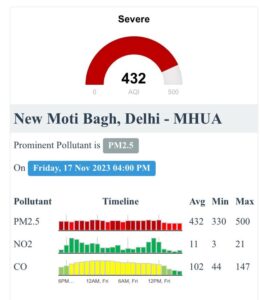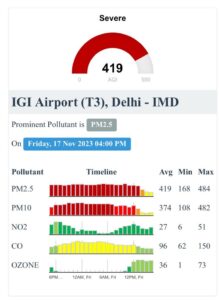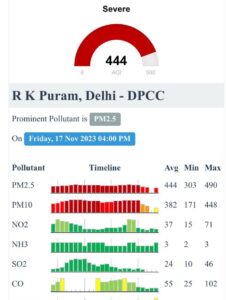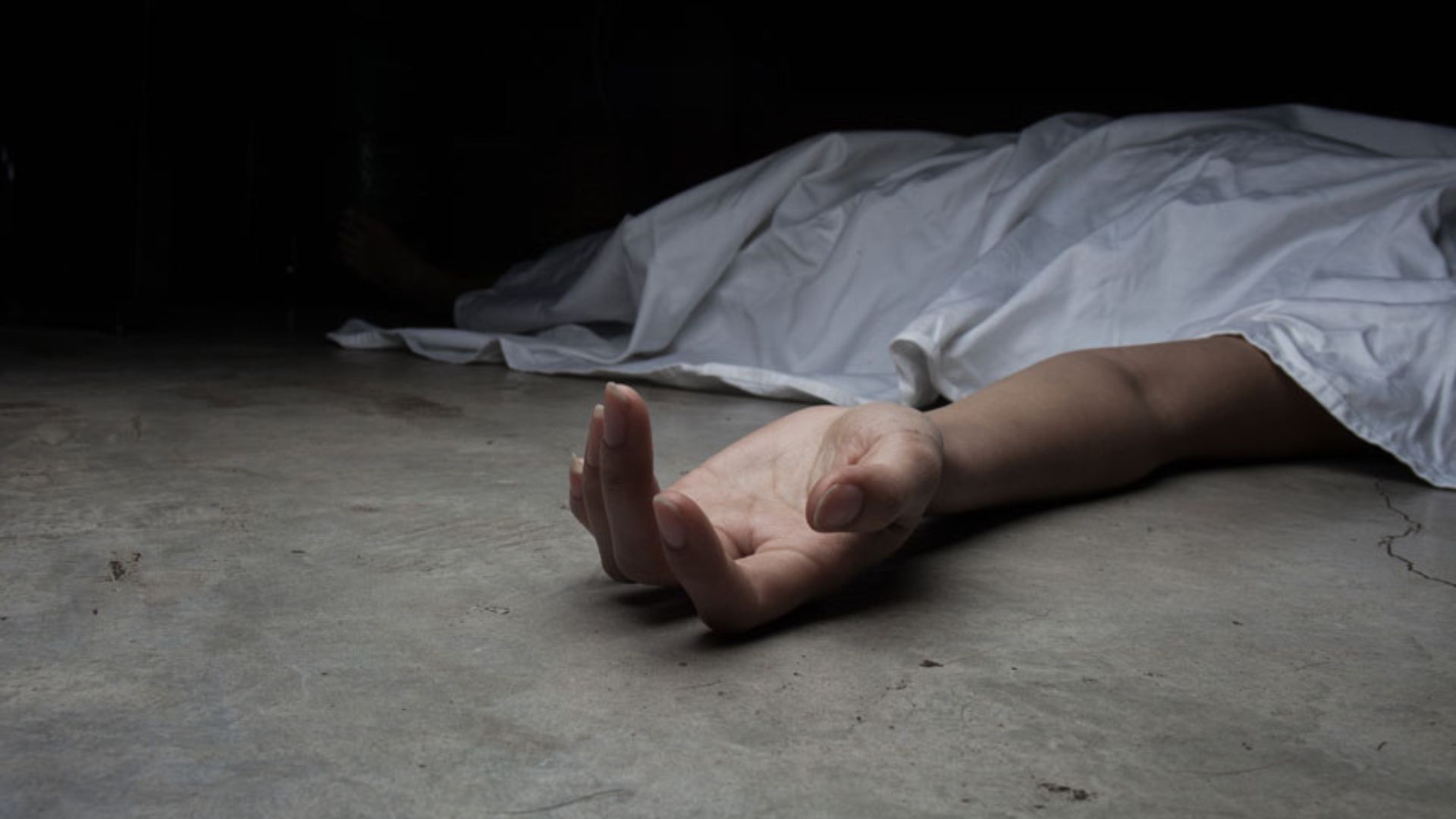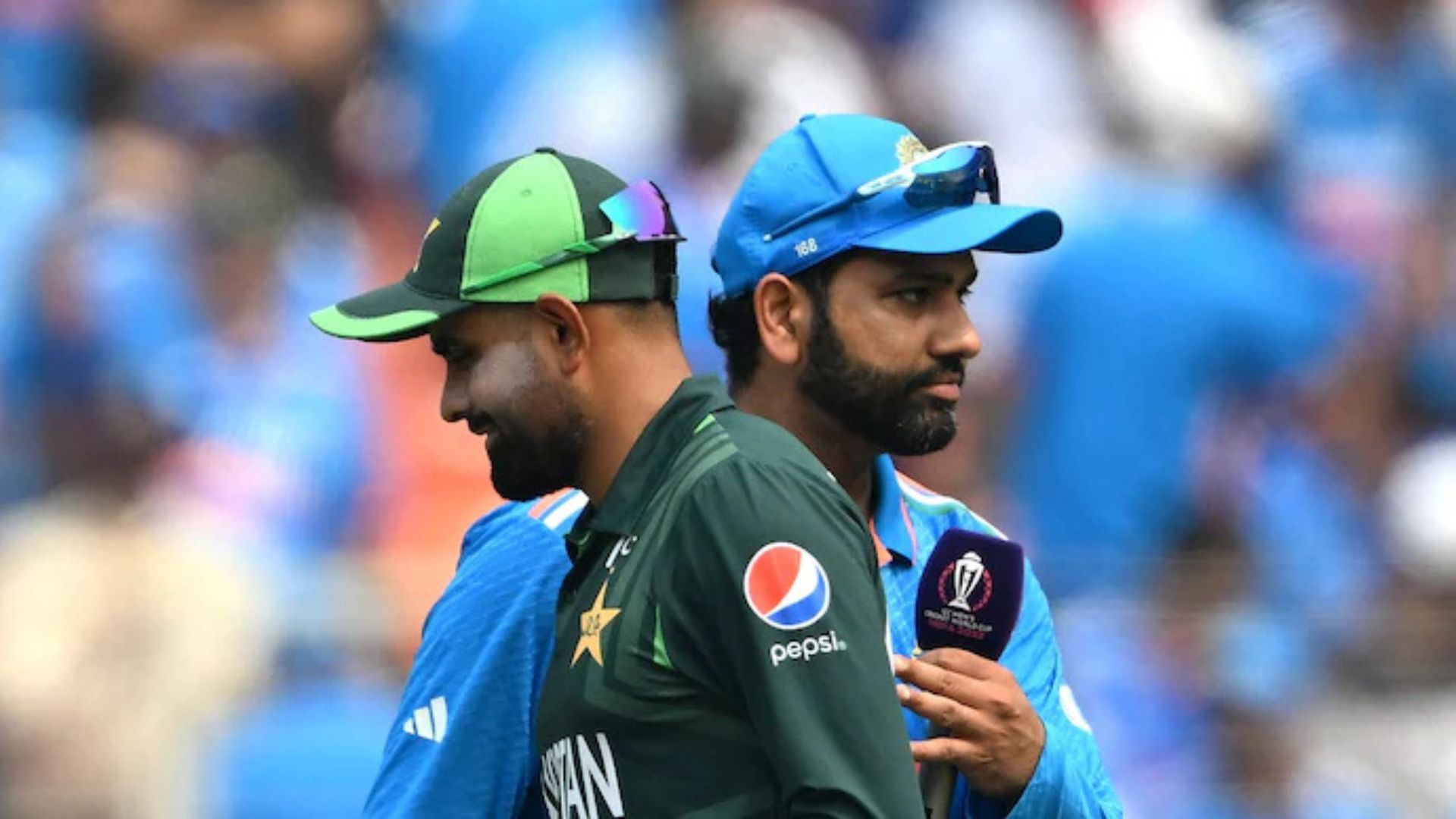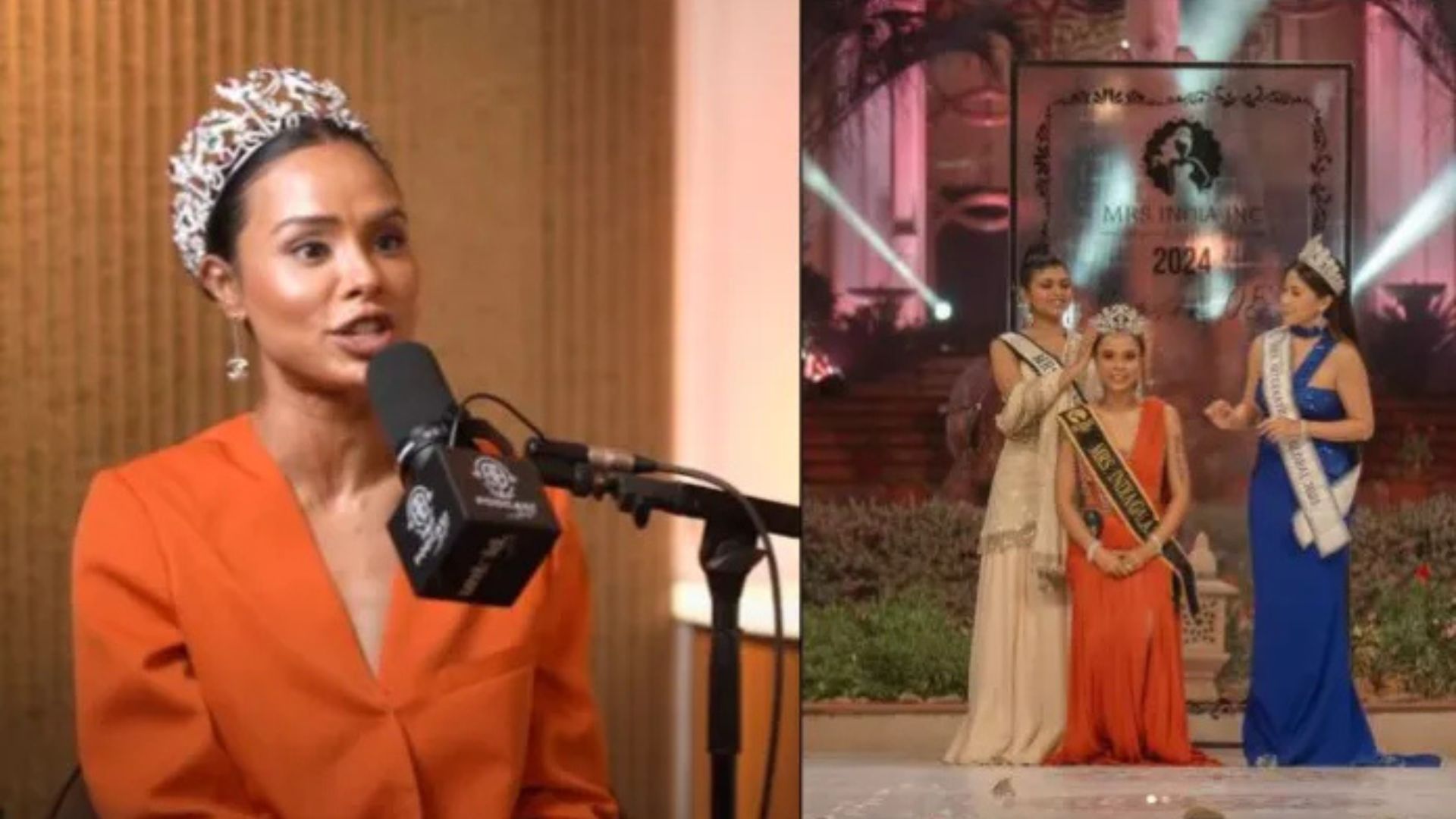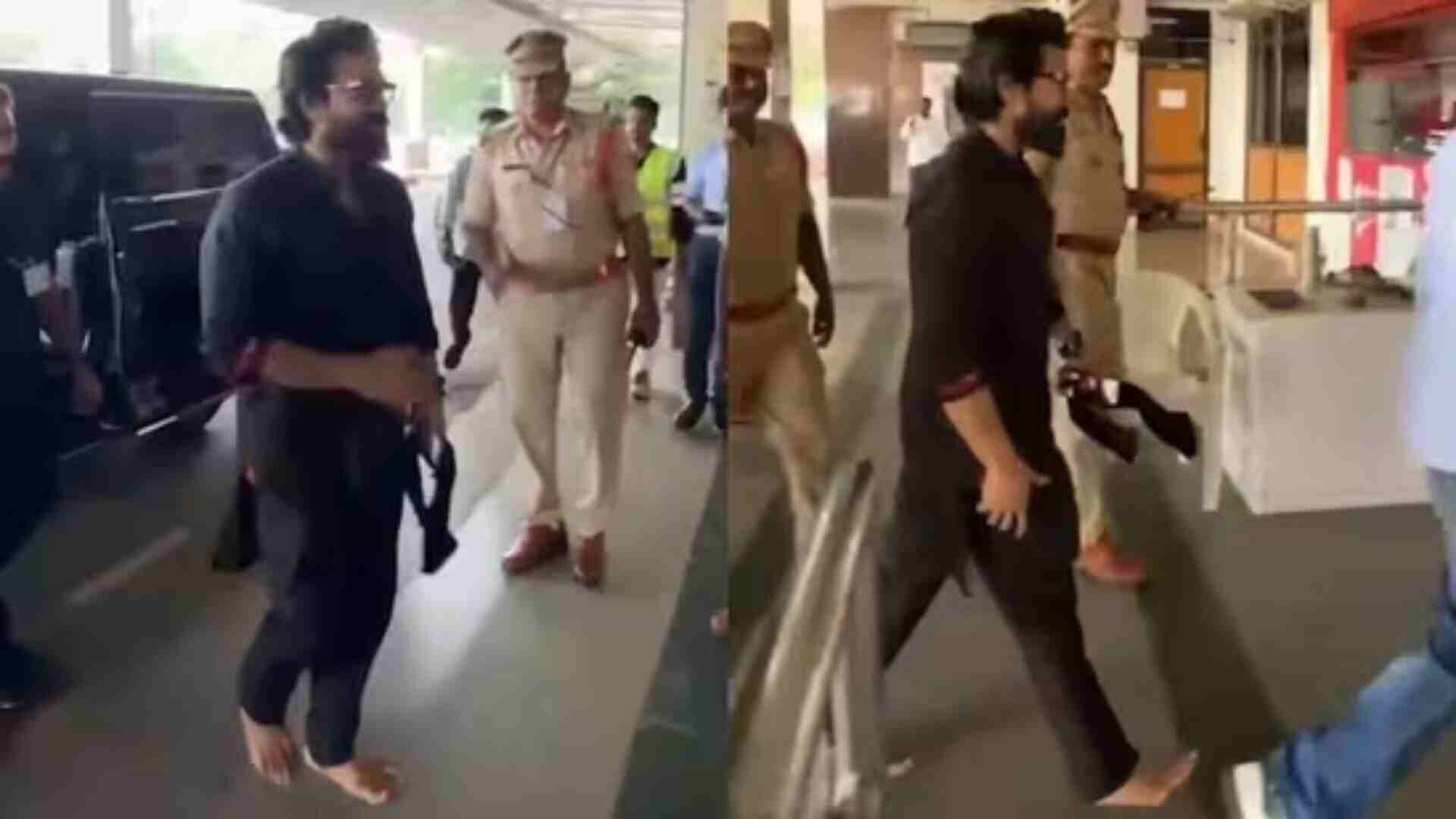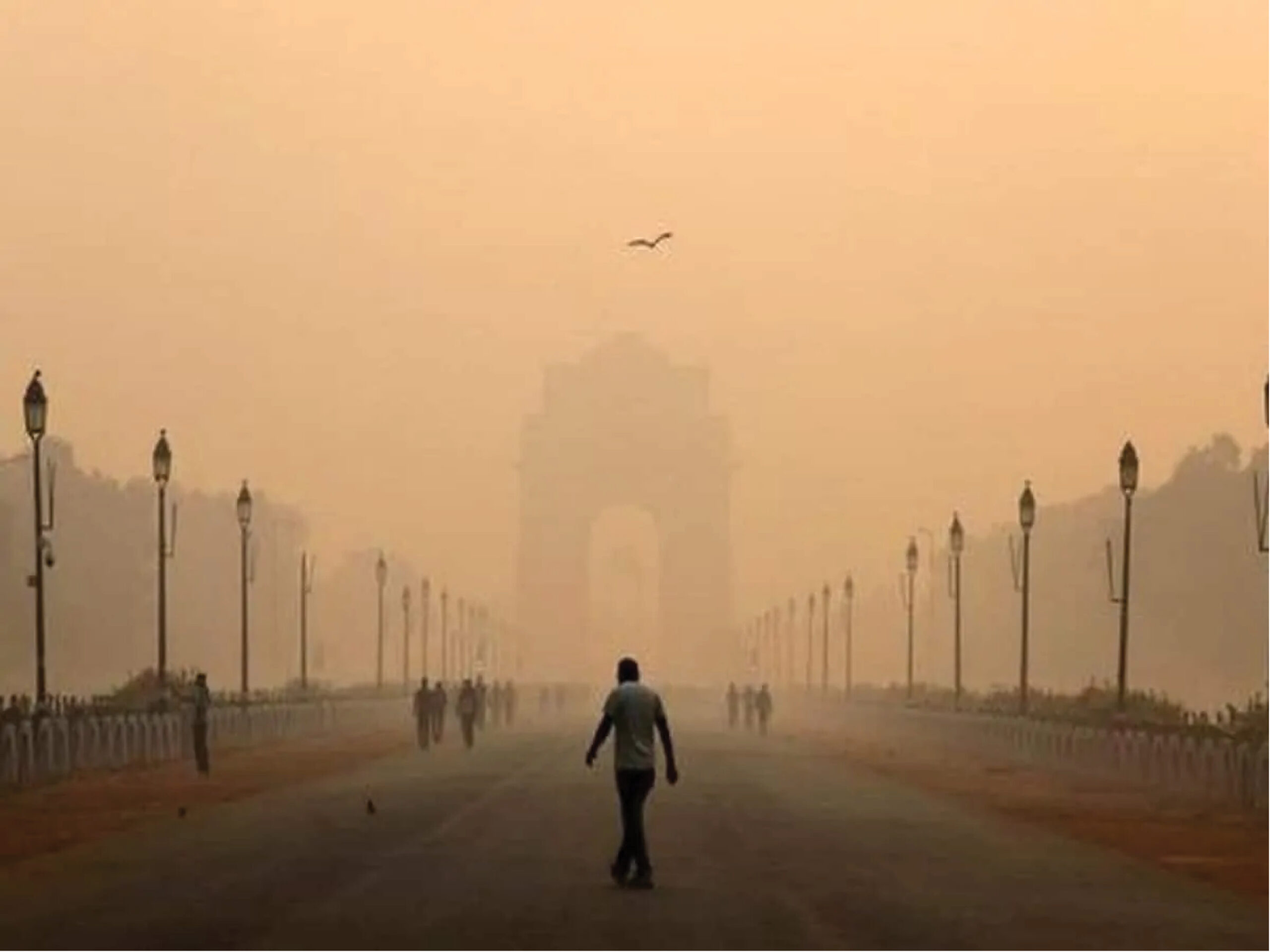
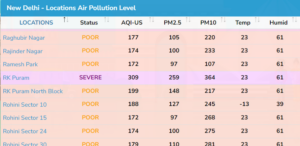
A layer of haze continued to cover Delhi on Friday at 7 am, and the air quality was recorded in the ‘severe’ category in several parts of Delhi. As per the Central Pollution Control Board (CPCB) data recorded at 8 am, the air quality in RK Puram was recorded at 461, it was at 454 at New Moti Bagh, 465 at the IGI Airport area and 475 at Nehru Nagar, all in the severe category.
On Wednesday, as per the Central Pollution Control Board (CPCB), the air quality in RK Puram was recorded at 420, it was at 408 at New Moti Bagh, 404 at the IGI Airport area and 433 at Nehru Nagar, all in the severe category.
The city was engulfed in a thick layer of smog on the night of Diwali and the toxic haze continued the next day following the bursting of firecrackers, despite the Supreme Court order.
Nine out of 11 state capitals analysed in India recorded higher pollution in the first 12 hours after Diwali celebrations this year as compared to last year. The government’s National Clean Air Programme (NCAP) tracker analysed PM 2.5 (fine particulate matter) data for 11 capital cities. The highest spike (recorded at 15-minute intervals) was seen in the national capital Delhi. It was 999.5 ug/m3 at Pusa on November 13 at 1:30 am.
The NCAP Tracker is a joint project by Climate Trends and Respirer Living Sciences to create an online hub for the latest updates on India’s clean air policy, the National Clean Air Programme (NCAP). The data was sourced from the Continuous Ambient Air Quality Monitoring Stations (CAAQMS) of the Central Pollution Control Board (CPCB).
Firecrackers were burst in the national capital and other cities on Diwali despite alarming pollution levels and the Supreme Court’s ban on bursting crackers. Delhi Environment Minister Gopal Rai held a review meeting yesterday at the Delhi Secretariat with the concerned officers to ensure strict compliance with GRAP-IV rules in the city. After the meeting, Rai mentioned that a 6-member special task force has been formed, under the leadership of the Environment Special Secretary for proper implementation and monitoring of GRAP rules.
While talking to ANI after the meeting, Gopal Rai said, “The task force includes the Special Commissioner of Transport, DCP (HQ) Traffic Police, Deputy Commissioner, Revenue (HQ), Chief Engineers of MCD and PWD. The main work of this task force will be to coordinate daily with the concerned departments and remove the problems faced by them and give the implementation report to the government.”
On Thursday, the Delhi government set up a six-member special task force to ensure strict implementation of the Centre’s air pollution control plan GRAP in the national capital, environment minister Gopal Rai said.
